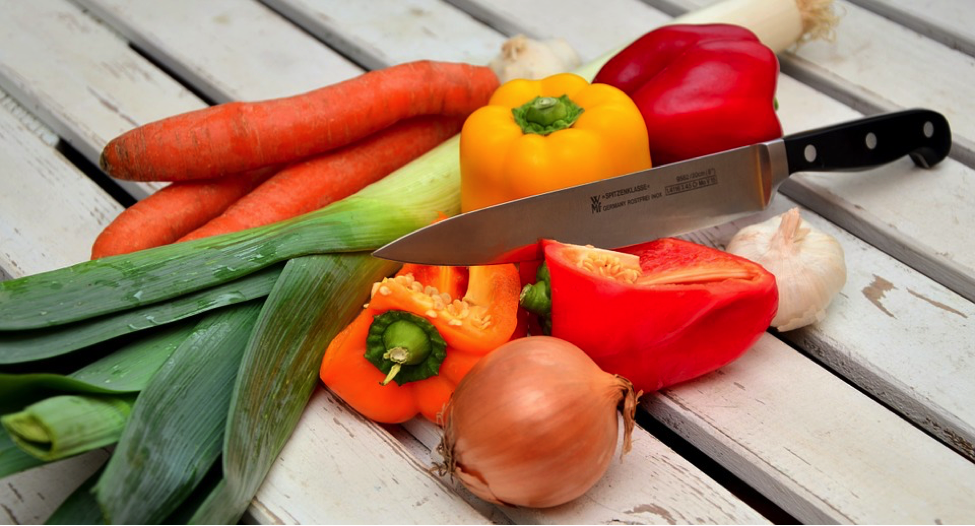
by Audrey Throne
One of your biggest fears as you grow older could possibly be losing memory and experiencing a decline in your cognitive functioning. As the body ages, so does the brain and with time its functioning may deteriorate to an extent, which may take a huge toll on your mental health. This can even lead to various mental conditions, one of which is dementia.
However, this decrease in mental functioning is not permanent as long as you take extra care of your brain by feeding it energy-boosting foods that are rich in essential minerals and vitamins.
Research shows there are several brain-foods that can help us preserve our cognitive ability over time. One of the most prominent and common sources of brain-boosting compounds is vegetables. They are packed with antioxidants and essential minerals and vitamins that help protect the brain from declining cognitive ability which is central to dementia.
Vegetables and Mental Health
According to a study conducted recently, incorporating vegetables in your everyday diet can improve mental health in just a span of two weeks. No wonder, the consumption of vegetables is increasingly linked with positive effects on mental health and a decline in cognitive impairments.
Furthermore, extended research on the subject also shows that adding vegetables like spinach, kale and collards to your diet can slow down cognitive dysfunction and may even prevent the symptoms of dementia and Alzheimer’s from progressing too fast.
The consumption of vegetables, especially the green leafy ones, offers a very simple and non-invasive way to protect your brain from conditions like dementia and Alzheimer’s. Even if you do develop either of the two in old age, an adequate intake of vegetables is likely to prevent them from progressing and impacting your mental health.
Here are some of the vegetables that can slow down dementia and cognitive decline in elderly women.
Spinach
If a part of your childhood was spent watching Popeye the Sailorman, you are probably aware of the wonders of spinach in terms of what it can do to your body. We all know that spinach is excellent for our physical health owing to the number of essential vitamins and minerals it contains. However, what many people may not be aware of is the fact that eating spinach also affects your mental health.
Numerous studies have been conducted to date on foods that contribute to positive mental health and prevent or slow down dementia in the elderly. One such study found that consuming a daily serving of spinach may lead to a decrease in age-related cognitive decline associated with dementia. The results of the study also showed that it is the presence of Vitamin K in spinach which promotes mental sharpness and slows down cognitive decline in dementia patients.
Carrot
You may have started eating carrots at some point in life after getting to know about its benefits for your eyesight. While doing so, you didn’t only do your physical health a favor; but unknowingly, you significantly helped your brain and mental health too.
Research shows that eating carrots along with kale and sweet potatoes may be able to help prevent dementia in older adults. Carrots contain a compound called carotenoids which gives them their vibrant, orange color. Consumption of these compounds has been found to strengthen and boost brain functioning in older adults.
Researchers from the University of Georgia conducted a study to investigate how carotenoids affect the brain activity where they assessed the brain activity of more than 40 adults. The results of the study showed significant association between brain functioning and the levels of carotenoids present in an individual’s system.
Broccoli
Like spinach, broccoli also contains the compound Vitamin K which is crucial for strengthening cognitive abilities and mental health. It is also rich in choline – a compound that improves memory.
A study published in the journal Nature Communications shows that consuming cruciferous vegetables like broccoli can reduce the levels of tau proteins that typically accumulate in the brains of people with dementia and Alzheimer’s. Accumulation of the Tau protein is one major hallmark feature of Alzheimer’s disease which causes brain cells to develop tangles in the brain.
Broccoli also contains another compound called sulforaphane which scientists believe helps keep the brain sharp and active in old age. This compound is believed to be able to protect brain cells from destroying and being attacked by free radicals and ultimately slowing down cognitive decline in the elderly.
Red Cabbage
Among the numerous nutrition rich vegetables, red cabbage has been recently found to assist in the prevention of dementia and slowing it from progressing. A new study shows that red cabbage reduces the buildup and accumulation of certain plaques in the brain that can contribute to Alzheimer’s disease.
Scientists and experts tested the effects of both white and red cabbage polyphenols on cell cultures caused by the amyloid protein A-beta which is a major characteristic of Alzheimer’s disease. The results showed that the high concentrations of antioxidants present in red cabbage offered greater protection against the toxicity from beta amyloid on cell cultures.
This suggests that the consumption of red cabbage is greatly linked with the reduction of dementia symptoms in elderly women and its components can effectively protect the brain from experiencing a steep cognitive decline.
There are numerous other vegetables that are packed with nutrients and compounds necessary for improved memory and cognitive function. The key point to consider here is that as soon you take an online dementia test or one at the doctor’s, you should do your best to follow and eat a healthy diet. Your diet should always contain things like fruits, vegetables, fish, and grains, regardless.
Following such a diet won’t just foster good mental health but also enhance your overall physical health.
(Audrey Throne is a mother of a 2-year old and a professional blogger by choice. Throne is passionate about health, technology and management and blogs frequently on these topics. Find her on Twitter: @audrey_throne.)






Great tips. Turmeric is an excellent spice that prevents dementia. So it is a good idea to cook the vegetables mentioned in this post with turmeric.
Great insight. I enjoy that of carrot knowing it’s full impact on the eyes. It is quite a fruit to explore it’s potential. blending the mentioned vegetable will be a good to go meal.
linda.
I am 66 years old and have been type 2 diabetic for more than 25 years. I have benefited by the contribution of articles in nutrition such as this one on vegetables because I realized early enough that diabetes can cause ailments in the heart, eyes, kidney and finally the brain. Alternative treatment before dementia arrives is frequent use of vegetarian dishes.Not only was I able to reverse my diabetic status but also increase my mental capability all thanks to the eating of vegetables.